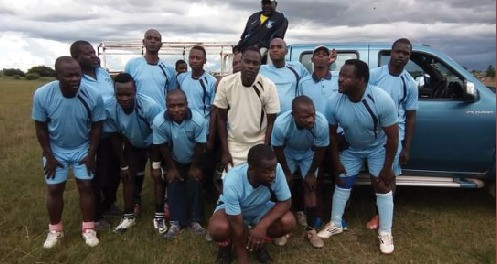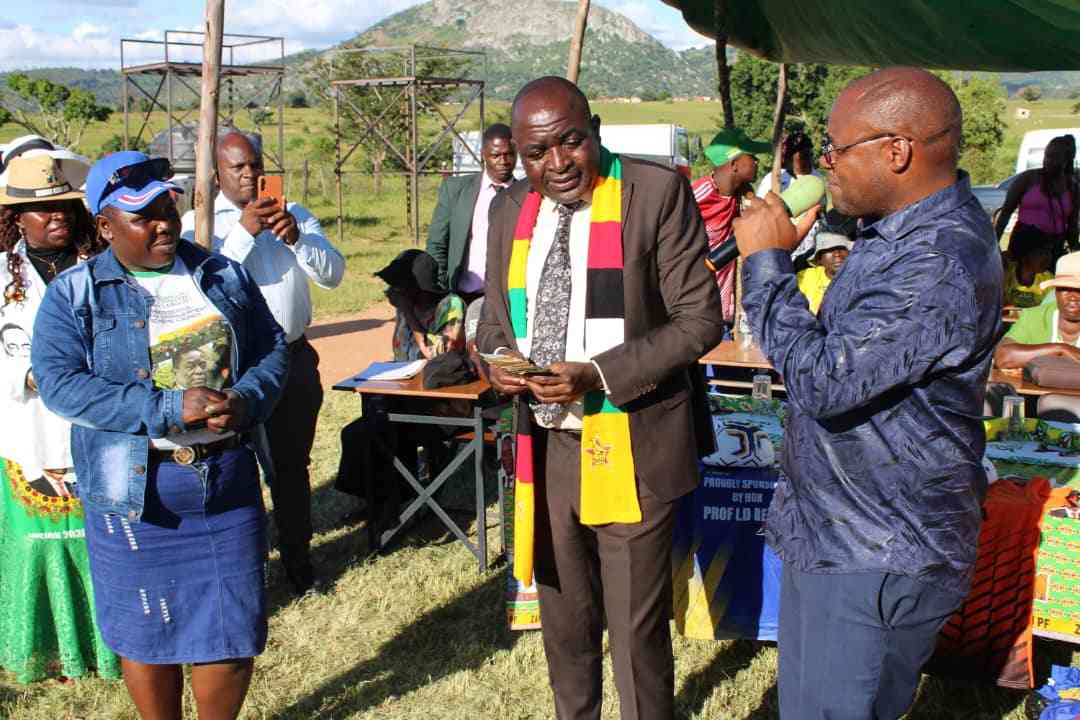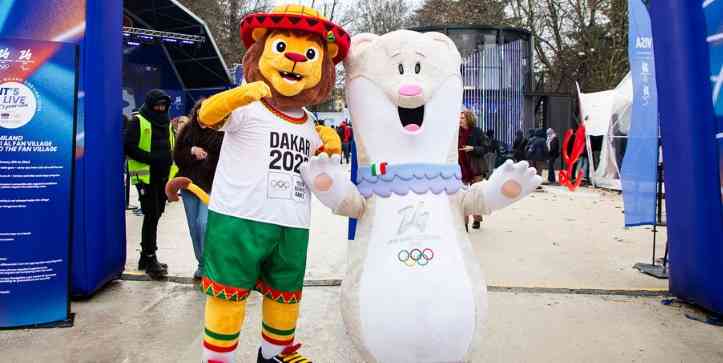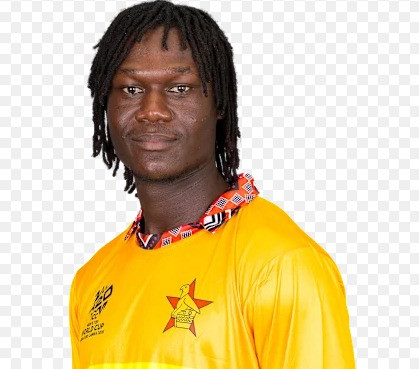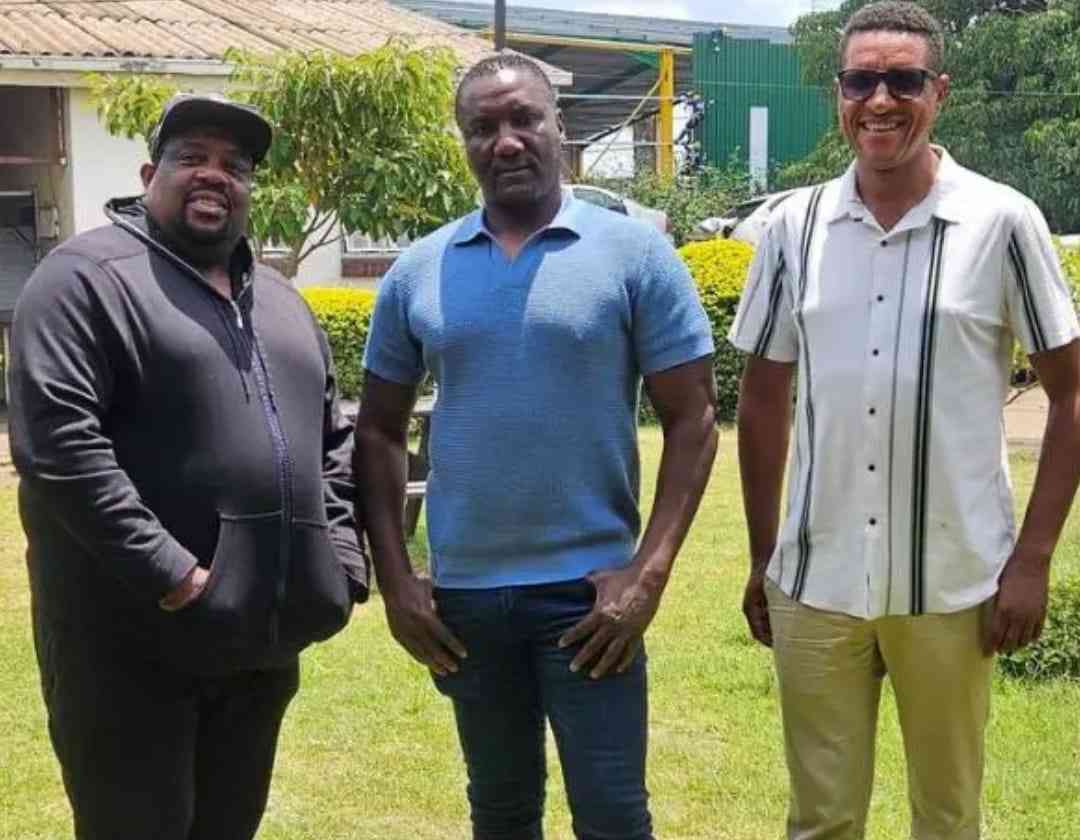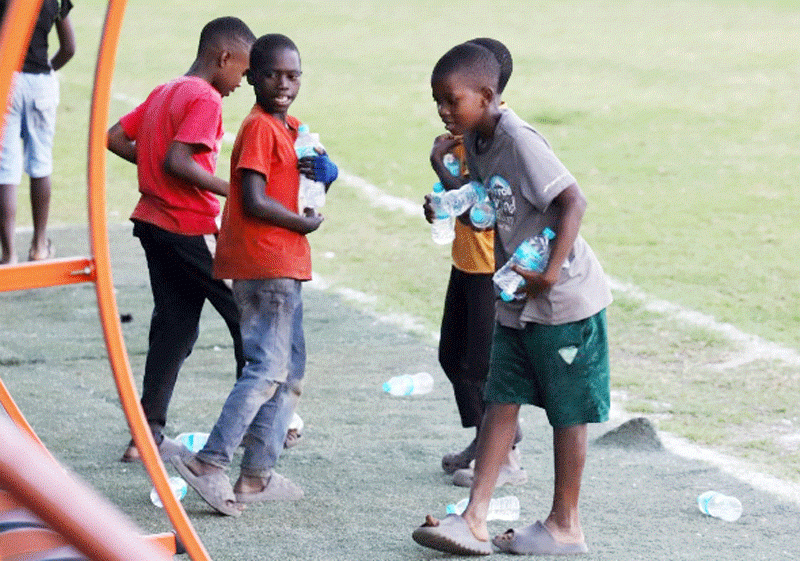
As the roar of the crowd fades and the final whistle blows, a different kind of game begins at Zimbabwe's football stadiums.
While fans head home, a quiet army emerges from the shadows, armed with sacks and a keen eye for treasure. These are the "plastic hustlers," and for them, every discarded bottle is a piece of gold, transforming lives and cleaning up communities.
The rise of moneyed teams in local football has brought not only bigger crowds and louder cheers, but also an unexpected economic boom for these informal recyclers.
Stadiums, once just arenas for sport, have become vibrant hubs for grassroots entrepreneurship. With each match day, thousands of plastic bottles and containers are left behind, offering a valuable harvest for those willing to collect them.
For many, particularly youth and women, this hustle is more than mere survival; it's a pathway to dignity and a better life. They bag large volumes of recyclable plastic, selling it to recycling agents for a vital income.
The booming attendances at newly promoted clubs like Scottland FC and MWOS, as well as Shamva-based champions Simba Bhora have amplified this opportunity, allowing hustlers to feed families, pay school fees, and even set aside savings.
For Lazarus Devera (27), a resident of Mbare high-density suburb in Harare this has been his way of living for the past four years, but the coming in of flamboyant teams has made his work much more easier and rewarding.
“I have been a plastic collector for almost four years, but I should admit that the coming in of recently promoted teams MWOS, Scottland FC and Simba Bhora has changed my fortune,” Dewera said.
- Chamisa under fire over US$120K donation
- Mavhunga puts DeMbare into Chibuku quarterfinals
- Pension funds bet on Cabora Bassa oilfields
- Councils defy govt fire tender directive
Keep Reading
“These clubs have brought a new dimension, they have improved football at the same time creating big business for us.
“During week days I do my normal work, but when these teams are in action, it also means brisk plastic picking.
I go and sell the plastic containers at US$0,30 per kilogramme. It takes me a day to fill-up a one-tonne sack, especially on soccer match days and I get paid US$300 at a company in the Graniteside industrial area.”
He added: “Previously, it’s now different from what I used to notice with the so-called traditional teams [Caps United, Highlanders and Dynamos], we were not recording high volumes of plastic pickings like what we are doing with the moneybag teams.”
Mavis Tevedzai (44) and her two children, from Katanga high-density suburb in Norton, revealed that they always go to Ngoni Stadium to pick plastic bottles. They usually gain entry into the stadium after the match and begin their business.
“We have not missed home games for MWOS FC, where we make a killing out of their support base,” Tevedza said.
“We collected more plastics when our local team hosted Scottland FC and FC Platinum
“All our big three-tonne sacks sizes were full and recorded higher sales on a Monday when we took them to plastic recycling companies.
“The teams keeps us going, we have managed to put food on the table, pay our bills, rents and school fees.”
The newly-promoted MWOS FC chairperson Cleyton Arimoso, whose team recorded a full house of more than 6 000 supporters on Match Day 21 when they hosted FC Platinum at Ngoni Stadium in Norton was surprised to note that his team is changing lives for many households.
“We are happy that we are ploughing back to the community as we have created jobs for the plastic collectors,” Arimoso told The Sports Hub.
“It is our mandate to help the community as a local team. It’s a win-win situation with them as they also help us clean our stadium including the surrounding areas and we are benefitting from them.”
On Match day 3 Scottland FC vs Ngezi Platinum, Pedzai “Scott” Sakupwanya the owner of Scottland FC spotted a young boy picking plastic containers during the match at Rufaro Stadium and pledged not only to build him a house, but also paid for his school fees.
“This boy [Mukudzei Umali] wasn’t asking for anything, he was just doing what he felt was right. That kind of character deserves to be supported,” Sakupwanya said.
A climate change and environmental specialist from the University of Zimbabwe Achieford Mhondera said: “These litter pickers are unsung eco- heroes who play an outsised role in urban environmental protection.
“They prevent blockages in drainage systems that can trigger flooding and spread of pollutants into waterways.
“Their informal recycling, sorting and selling plastics contribute to a circular economy through reducing material sent to landfills and lowers the demand for virgin plastics and energy required for producing new plastics, cutting associated emissions.
“Beyond this, their work curbs health hazards from stagnant water facilitated by the accumulation of unchecked litter and this supports cleaner public spaces that discourages further littering.”
The plastic bottle hustlers scouring stadiums may appear to be just scraping by, but their impact runs far deeper.
While eking out a modest living, they are playing an unspoken yet vital role in combating pollution and promoting environmental sustainability.
Each bottle picked, bagged and sold is one less item choking our drains, littering our landscapes, or polluting our rivers.
These unsung heroes of climate action remind us that even small, informal efforts can contribute to a cleaner, greener future.
With proper support and recognition, their hustle could evolve into a powerful force for both livelihood empowerment and environmental restoration.

